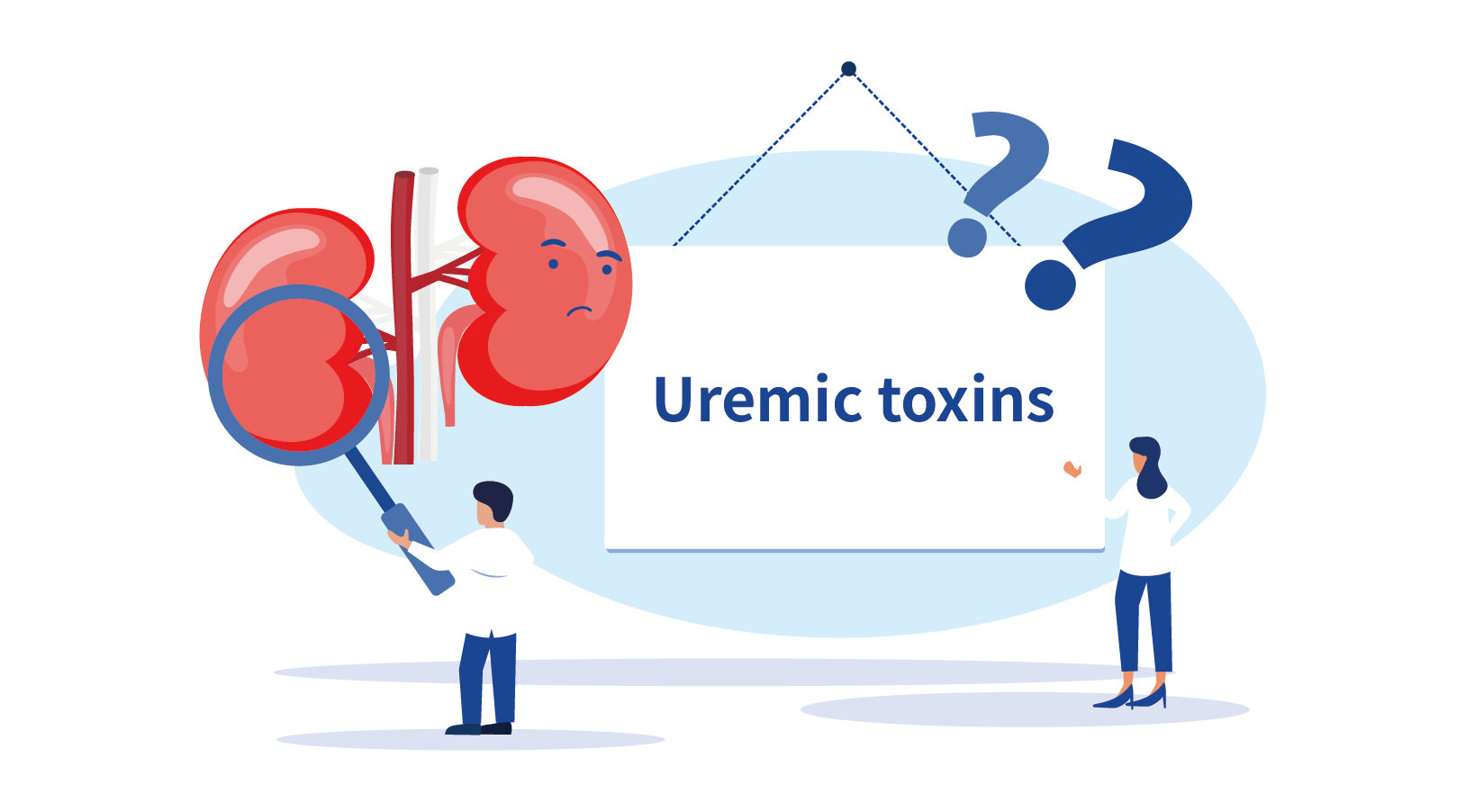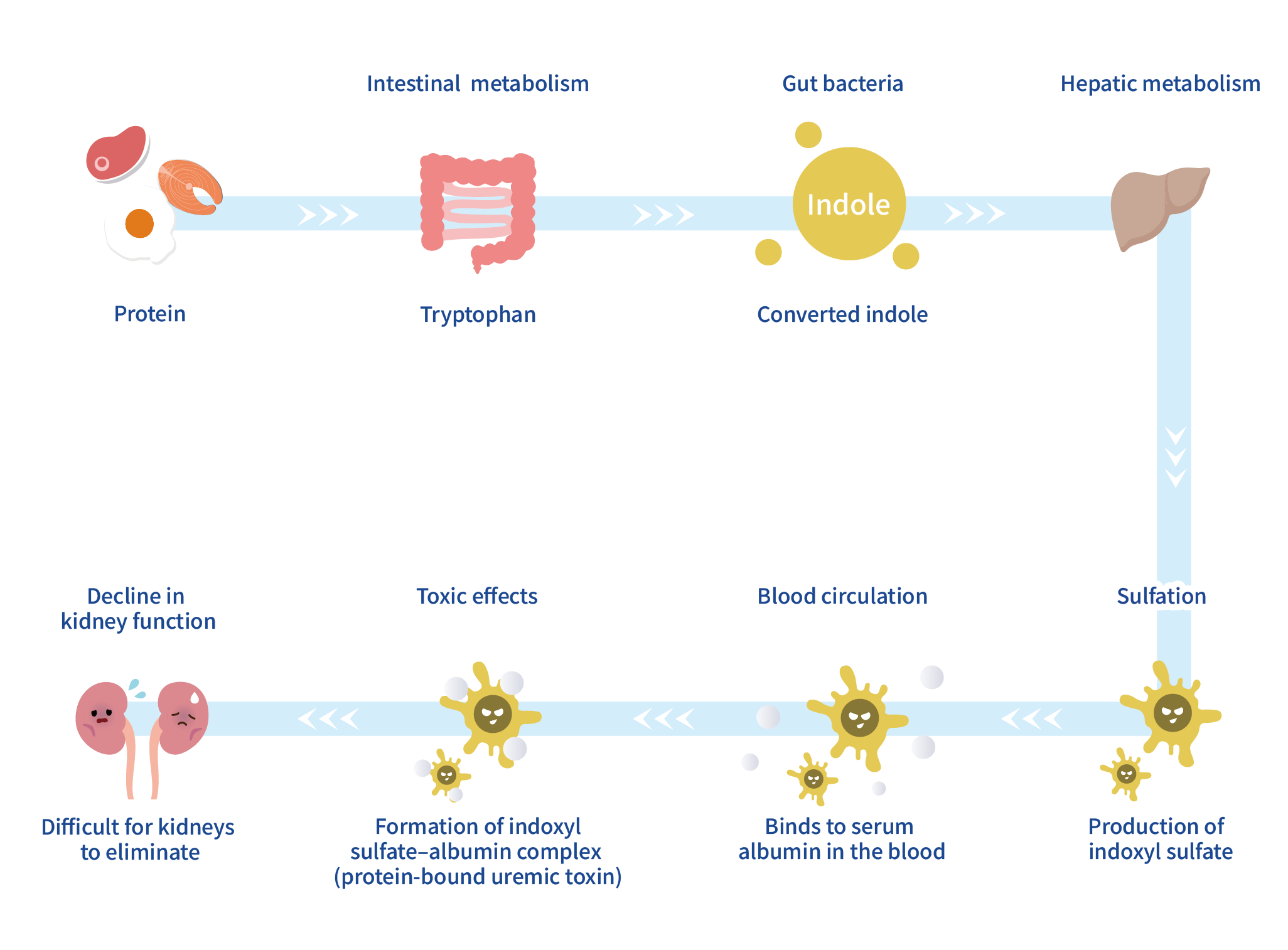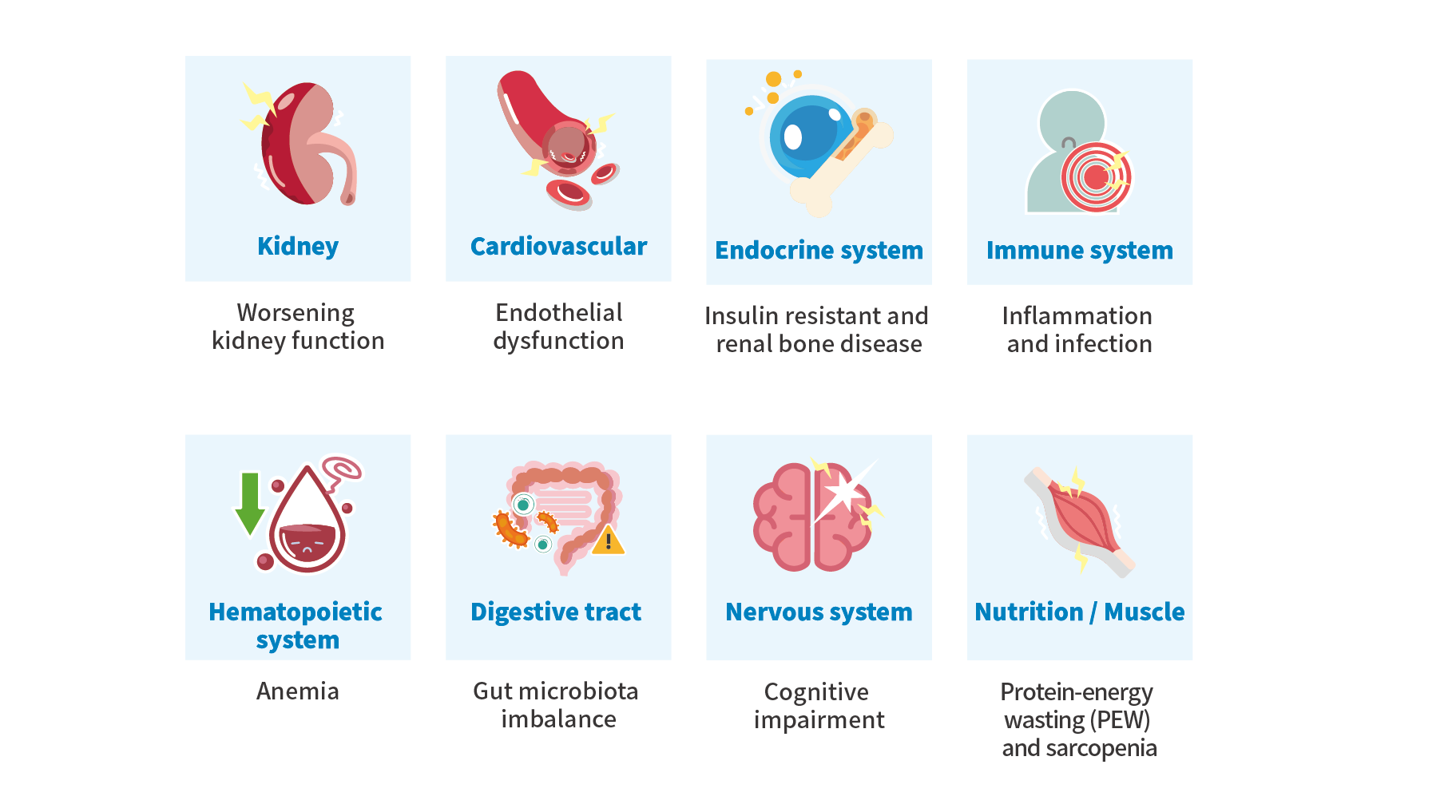
Many people assume their kidneys are healthy if their creatinine levels or estimated glomerular filtration rate (eGFR) fall within the "normal range" during annual health check-ups.
However, the reality is that chronic kidney disease (CKD) often develops silently and without symptoms.
According to the official World Kidney Day website:
"Chronic Kidney Disease (CKD) is a silent killer, often showing no symptoms until it has reached an advanced stage." [1]
In other words, normal kidney function test results do not guarantee the absence of underlying problems.
According to MedlinePlus, a service of the U.S. National Library of Medicine, kidney issues can still be present even when creatinine and eGFR levels appear normal [2].
This makes regular monitoring especially important for high-risk groups, such as individuals with diabetes or hypertension.
What Are Uremic Toxins and How Do They Relate to Kidney Health?

"Uremic toxins" refer to a group of waste products produced by the body’s metabolism that are typically excreted by healthy kidneys. When kidney function begins to decline, these toxins start to accumulate in the body.
Notable examples include:
- Indoxyl sulfate
- p-Cresyl sulfate
- Blood urea nitrogen (BUN)
- Creatinine

The accumulation of uremic toxins can not only further damage the kidneys but also affect other organs, leading to complications involving the heart, bones, and more.
Why Should You Be Concerned About Uremic Toxins Even If Your Kidney Numbers Are Normal?
- Early kidney damage may not show up in standard tests.
Creatinine and eGFR levels typically don’t change until kidney function is significantly impaired. In the early stages, they may still appear normal.
- Toxins can begin to build up before standard markers detect problems.
Certain uremic toxins—especially protein-bound ones like indoxyl sulfate—can accumulate even when basic kidney test results remain within the normal range.
- Uremic toxins are linked to chronic inflammation and cardiovascular disease.
Long-term toxin buildup increases the risk of numerous health complications.
Who Should Be Especially Vigilant?
- People with diabetes, hypertension, obesity, or the so-called "three highs" (high blood pressure, high blood sugar, and high cholesterol)
- Those with a family history of kidney disease
- Individuals who have normal test results but experience symptoms such as fatigue, nocturia (frequent nighttime urination), or edema (swelling)
Kidney Health: Look Beyond the "Numbers" and Focus on the "Risks"
The kidneys are known as "silent organs." While routine lab testing is essential, it’s just one part of a comprehensive health strategy.
A holistic approach, including risk assessment and preventive care, is key.
If you fall into a high-risk category, it’s advisable to consult your physician about whether additional tests—such as those for uremic toxins—are appropriate for early detection and kidney protection.
References
